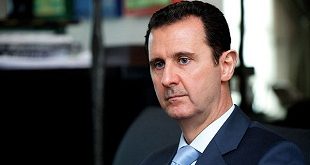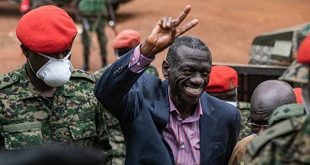
Latest in Uganda, Rwanda, Kenya, Burundi firepower
| THE INDEPENDENT | Countries in the East African region continue to spend more on strengthening their armed forces, according to latest data. Although Kenya and Tanzania are the biggest spenders because of their relatively big budgets, most attention is on Uganda, Rwanda, and Burundi which are experiencing tense potential cross-border situations.
According to latest data, Uganda has made the biggest expenditure on its military at US$408 million in 2018, Rwanda follows at US$119.5 million and Burundi US$66.9 million.
Uganda has been listed among the top 15 countries in percentage increase in military expenditure globally in 2018. Burkina Faso led with 52% increase. Uganda was number 14 with 17% increase to US$408 million in 2018. For comparison, South Sudan spent US$59.4million in 2018, which was a 50% drop from 2017.
These figures are in constant 2017 dollar rates and are picked from data by the Stockholm International Peace Research Institute (SIPRI), which compiles them from official data of governments, UN reports, and country expenditure reports by global agencies like the International Monetary Fund (IMF), expert analysis of country budgets, and defense journals and publications.
These numbers are significant because, generally, military expenditure in Africa fell by 8.4% in 2018. According to SIPRI, African governments spent an estimated US$40.6 billion on their armies or 2.2 per cent of global military spending. This was the largest relative annual decrease since the post-cold war peak reached in 2014. Despite four consecutive years of decreases, military expenditure in Africa was still 9.2 per cent higher in 2018 than in 2009. According to SIPRI, military expenditure does not reflect military capability and the data is incomplete for some countries.
The numbers also come at a time of increasing tension in the Great Lakes Region countries; mainly Uganda, Rwanda, Burundi, and DR Congo but has sucked in Tanzania, Angola, and Congo.
In one illustrative case on Nov.14, Rwandan President Paul Kagame spoke strongly about people he said are trying to destabilise Rwanda. He said some are backed by foreign forces and that they will pay heavily for their actions.
“We are going to raise the cost on the part of anybody who wants to destabilise our security,” said Kagame, who was officiating at a swearing in ceremony of new cabinet ministers and senior military officers at parliament in Kigali.

Following this, on Nov.15, rebel leader Musabimana Juvenal aka Gen. Jean-Michel Africa of the ethnic Hutu Democratic Forces for the Liberation of Rwanda (FDLR), and four of his bodyguards were killed in a security operation in Rutshuru, in the North Kivu region of eastern DR Congo. Rwanda Special Forces are deployed there in joint operations with the DR Congo army. Uganda was asked to join them in the operations but in an Oct.25 meeting in Beni declined the offer. Instead, Uganda said it would secure its border against militia forces and only join bilateral military arrangements with DRC.
Almost simultaneously, on Nov.17, on the eastern side of Rwanda, Burundian soldiers were hit in a night attack on their base near the border with Rwanda.
Burundi’s Ministry of Defense published reports of the attack in which eight Burundian soldiers were reportedly killed, including the company commander. The company is said to have had 90 soldiers. Many were injured while the rest fled in confusion. Military sources quoted by the media said it was one of the largest and deadliest attacks for several years.
Informed sources described how the assailants, wearing bullet-proof vests and night-vision goggles, pounced on the Burundian soldiers on Mount Twinyoni which is a thick forested area about 10km from the Rwanda border.
Initial reports said the attackers retreated in Rwanda and that their level of sophisticated equipment went beyond that of a rebel outfit. Burundi accuses Rwanda of backing rebels opposed to the Bujumbura government but Kigali denied involvement.
“It is not true that the attacks were made from people who came from Rwanda,” Olivier Nduhungirehe, State Minister for East African Community (EAC) Affairs told AFP, “These are unfounded allegations being made from Burundi – as they have done previously for the last four years. We have other things to do.”
Before that, on Nov.10, two alleged Ugandan smugglers of tobacco into Rwanda were shot dead by the Kigali security forces at Nyagatare, just a few metres from the Uganda-Rwanda border.
Then Nov. 19, unknown attackers killed at least 19 people in night raids in Beni in the same North Kivu province. This area lies just over the Rwenzori Mountain from the Uganda border. Beni is the base of the UN Stabilisation Mission in the DRC (MONUC) which has together with Rwanda Special Forces and the DRC army recently intensified attacks against armed militia groups in the region. The attackers reportedly kidnapped many people and set a Catholic church ablaze in two separate attacks that were about 35km apart.
Initial reports in the Nov.19 attack said the killers belonged to the Islamist militia group, the Allied Democratic Forces (ADF) that has for years been based in the DRC to fight the Kampala government of President Yoweri Museveni and generally wreak havoc in eastern DRC and the Kasese region of Uganda.
According to analysts, these incidents on Rwanda’s borders with the DRC, Uganda, and Burundi point to one thing; the Great Lakes Region is a neat pile of dry grass waiting for a single match-stick to set it on fire.
Some analysts say regional leaders are building their armies and fire power for what appears to be inevitable armed clashes.
 The Independent Uganda: You get the Truth we Pay the Price
The Independent Uganda: You get the Truth we Pay the Price


